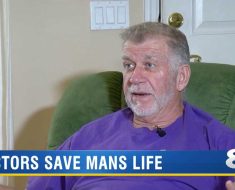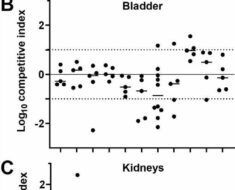
Most nutritional experts recommend keeping your diet as “clean” as possible, a.k.a. eating mostly whole foods and avoiding processed foods or preservatives. But what happens if your focus on clean eating becomes too intense? What happens if it starts controlling your life?
While paying close attention to what you put in your body is integral to becoming a happy and healthy person, if restricting your food intake becomes an obsession, then eating clean can become a huge problem. And as it turns out, there’s a term for this condition: orthorexia nervosa.
What is orthorexia?
Orthorexia is a focus on healthy eating that turns obsessive. It’s not yet officially recognized in the Diagnostic and Statistical Manual of Mental Disorders, 5th Edition (DSM-V), which has led some experts to view it as a form of obsessive-compulsive disorder (OCD) instead of an eating disorder. But regardless of how it’s categorized, some eating disorder experts say orthorexia is on the rise, thanks in part to social media and the rise of #CleanEating inspo.
Of course, a lot of guys eat healthy. So how do you know when it’s a problem? It’s something of a fine line, but the key is when your eating habits turn into “obsessive dietary restrictions and obsessive food behaviors,” Valerie Luxon, PsyD, who specializes in the treatment of eating disorders, told MensHealth.com.
Some examples may include obsessively reading the ingredient list on every food product you buy, or freaking out after you inadvertently consume a high-calorie food item. Cutting out entire food groups and only eating specific foods for an extended period of time — for instance, avoiding gluten for no health-related reason, or only eating raw foods — is another example.
“When the food obsessions occur together with a loss of moderation, balance, and withdrawal, orthorexia causes a decrease in quality of life and has a negative impact on relationships and emotional states,” says Luxon.
Who is at risk for orthorexia?
In part because it’s not in the DSM-V, we don’t have a ton of available data about orthorexia. We do know, however, that eating disorders in general are on the rise among men. In fact, an estimated 10% of men will suffer from an eating disorder during their lifetime.
When it comes to orthorexia specifically, healthy, active men may be at particular risk. That’s in part because men are more likely to diet for health reasons rather than as a way to lose weight, according to one study. Guys who want to eat clean to achieve optimal athletic performance may be more prone to obsessing over things like nutritional information and ingredient labels.
What are the signs and symptoms of orthorexia?
According to the National Eating Disorders Association (NEDA), the following are just a few symptoms of orthorexia:
What are the health risks of orthorexia?
You know the phrase “everything in moderation”? Well, that applies to healthy eating as well.
Just as eating too many unhealthy foods is bad for your overall health, personal trainer and sports nutritionist Brandon Mentore says that eating nothing but “clean” foods can also throw your gut health out of whack, due to a lack of diversity in your gut bacteria.
“Orthorexics who attempt to eat nothing but ‘clean’ foods tend to have gaps in nutrition quality, which can impair their gut health due to lack of bacterial diversity,” he told MensHealth.com.
People with orthorexia also may experience digestive dysfunction, particularly if they reintroduce any foods that aren’t included in their strict diets, as well as “brain fog and mood swings,” adds Mentore.
How to get help for orthorexia
If you answered “yes” to many of the above symptoms, it’s worth talking to your doctor or a mental health professional who specializes in eating disorder treatment. They’ll be able to determine next steps in terms of treatment. This is what Luxon typically tells her clients:
1) Practice flexibility around eating. Every week, try to incorporate something that you wouldn’t normally eat into your diet. It doesn’t have to be big: having a few bites of cake at a birthday party will suffice, as long as it’s outside the boundaries of your normal meal plan. The goal is to face your fear of eating an unhealthy item head-on and prove to yourself that the world won’t fall apart if you do it.
2) Be honest with yourself. Take a deep dive inward and really understand how this obsession could be affecting things that you used to value. Are you spending less time having dinner with your partner, for instance, because they tend to order unhealthy menu items? If your eating habits are getting in the way of your valued relationships, that’s a major red flag.
3) Go to a restaurant and eat with others. Next time you’re invited to a dinner out with friends, don’t immediately wonder whether there will be any items on the menu you can eat. Just say yes and follow through. It’s important to keep socializing and not letting your diet get in the way of your everyday life.
If you feel that you or a loved one has symptoms of an eating disorder, seek professional help or contact the National Eating Disorders Association (NEDA) helpline at (800) 931-2237. The NEDA Helpline is available Monday-Thursday from 9AM to 9PM ET, and Friday from 9AM to 5PM ET.
Source: Read Full Article





